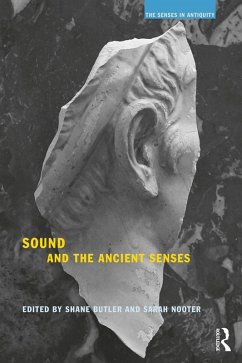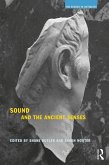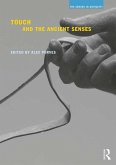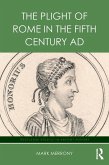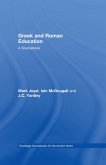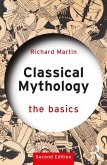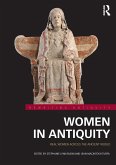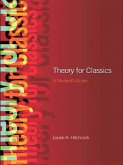Sound plays so great a role in shaping our environments as to make it a crucial sounding board for thinking about space and ecology, emotions and experience, mortality and the divine, orality and textuality, and the self and its connection to others. From antiquity to the present day, poets and philosophers have strained to hear the ways that sounds structure our world and identities.
This volume looks at theories and practices of hearing and producing sounds in ritual contexts, medicine, mourning, music, poetry, drama, erotics, philosophy, rhetoric, linguistics, vocality, and on the page, and shows how ancient ideas of sound still shape how and what we hear today. As the first comprehensive introduction to the soundscapes of antiquity, this volume makes a significant contribution to the burgeoning fields of sound and voice studies and is the final volume of the series, The Senses in Antiquity.
Dieser Download kann aus rechtlichen Gründen nur mit Rechnungsadresse in A, B, BG, CY, CZ, D, DK, EW, E, FIN, F, GR, HR, H, IRL, I, LT, L, LR, M, NL, PL, P, R, S, SLO, SK ausgeliefert werden.
"The volume will be important to scholars and students of the ancient senses, especially those that have been following this series and those with special interests in the acoustical past... the cumulative effect of the volume is quite dazzling as it amplifies the sonorous registers of our textual remains and recovers the acoustical residues of ancient experiences of sound." - Bryn Mawr Classical Review
"An essential read for all those interested in the 'soundscape' of Antiquity - from rites to the human body, the physiology of hearing, myth, music on the stage, ancient emotions and contemporary attempts to reconstruct ancient sounds -, the volume offers a broad perspective on sounds and hearing... Thanks to the rich variety of views on sound and the 'soundscapes' in ancient Greece and Rome, this volume establishes itself as a staple in future research on sounds and their perception, and on acoustics and society in the Graeco-Roman world." - Greek and Roman Musical Studies

